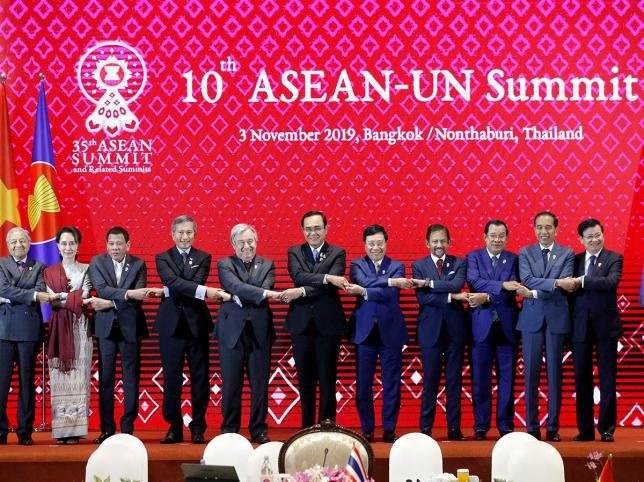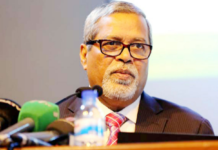Asean leaders reiterate need for comprehensive solution to Rohingya crisis
- Nayadiganta English Desk 04 November 2019

Asean leaders have reiterated the need to find a comprehensive and durable solution to Rohingya crisis addressing the root causes of the conflict in Rakhine State, UNB reports.
They laid emphasis on efforts to create a “conducive environment” so that Rohingyas, now taking shelter in Bangladesh, can rebuild their lives, according to a 52-point statement issued on the Summit.
The Heads of State and Government of Asean Member States, gathered in Bangkok for the 35th ASEAN Summit on November 2-3, encouraged the continued and effective dialogue between Myanmar and Bangladesh to facilitate the repatriation process of Rohingyas to their place of origin in Rakhine State.
They recalled the arrangement on “Return of Displaced Persons from Rakhine State” between Myanmar and Bangladesh signed in 2017 and looked forward to the voluntary return of displaced persons in a “safe, secure and dignified” manner.
The Asean leaders supported the implementation of the three points reached at the informal Foreign Ministers Meeting among Myanmar, Bangladesh, and China on September 23 in New York to facilitate the implementation of the bilateral agreements between Myanmar and Bangladesh on repatriation.
They encouraged Myanmar to continue to implement the remaining recommendations of the final report of the Advisory Commission on Rakhine State.
“We expect that the Independent Commission of Enquiry established by the Government of Myanmar would seek accountability by carrying out an independent and impartial investigation into alleged human rights violations and related issues,” read a statement issued after the Summit.
Myanmar is one of the member countries of Asean.
The Asean leaders also reaffirmed their continued support for Myanmar’s efforts to bring peace, stability, the rule of law, to promote harmony and reconciliation among the various communities as well as to ensure sustainable and equitable development in Rakhine State.
They reiterated the importance of continuity and sustainability in Asean Community-building efforts and commit to continue promoting partnership for sustainability, within Asean and in Asean’s relations with the international community, to realise a people-oriented, people-centred Asean Community that leaves no-one behind and looks to the future.
Bangladesh is now hosting over 1.1 million Rohingyas who have fled their homeland in Rakhine State after being persecuted by their own country.
Myanmar did not take back a single Rohingya from Bangladesh over the last two years but Myanmar, in its attempts to “mislead” the international community, claimed that a total of 397 displaced people have voluntarily returned from Bangladesh to Myanmar.
Two repatriation attempts were unsuccessful as Myanmar “failed to remove trust deficit” among the Rohingyas and there was “lack of conducive environment” in Rakhine for their return.
Last week, Bangladesh accused Myanmar of remaining engaged in a “persistent campaign” to mislead the international community to avoid its obligations for “sustained repatriation” and reintegration of the Rohingyas.
Dhaka also rejected “baseless accusations, falsification, and misrepresentation of facts” by Nay Pyi Taw, and urged it to stop its concocted campaign and concentrate on the fulfillment of its obligations.
“Myanmar must act decisively to address the real causes that are preventing the displaced Rohingya from going back voluntarily,” said the Bangladesh Foreign Ministry.
The ministry said it was a “matter of utter dismay” to witness such tenacious campaign with fabricated information, misrepresentation of facts, unsubstantiated claims and undue accusations on part of Myanmar to mislead the international community.
Bangladesh said Myanmar should seriously consider a comprehensive participation of the international community in creating conducive environment for the return as well as in the monitoring of repatriation and reintegration process.
“Myanmar should also cooperate with the international community to eliminate the culture of impunity for the sake of a durable solution to the protracted problem,” the Foreign Ministry said.









